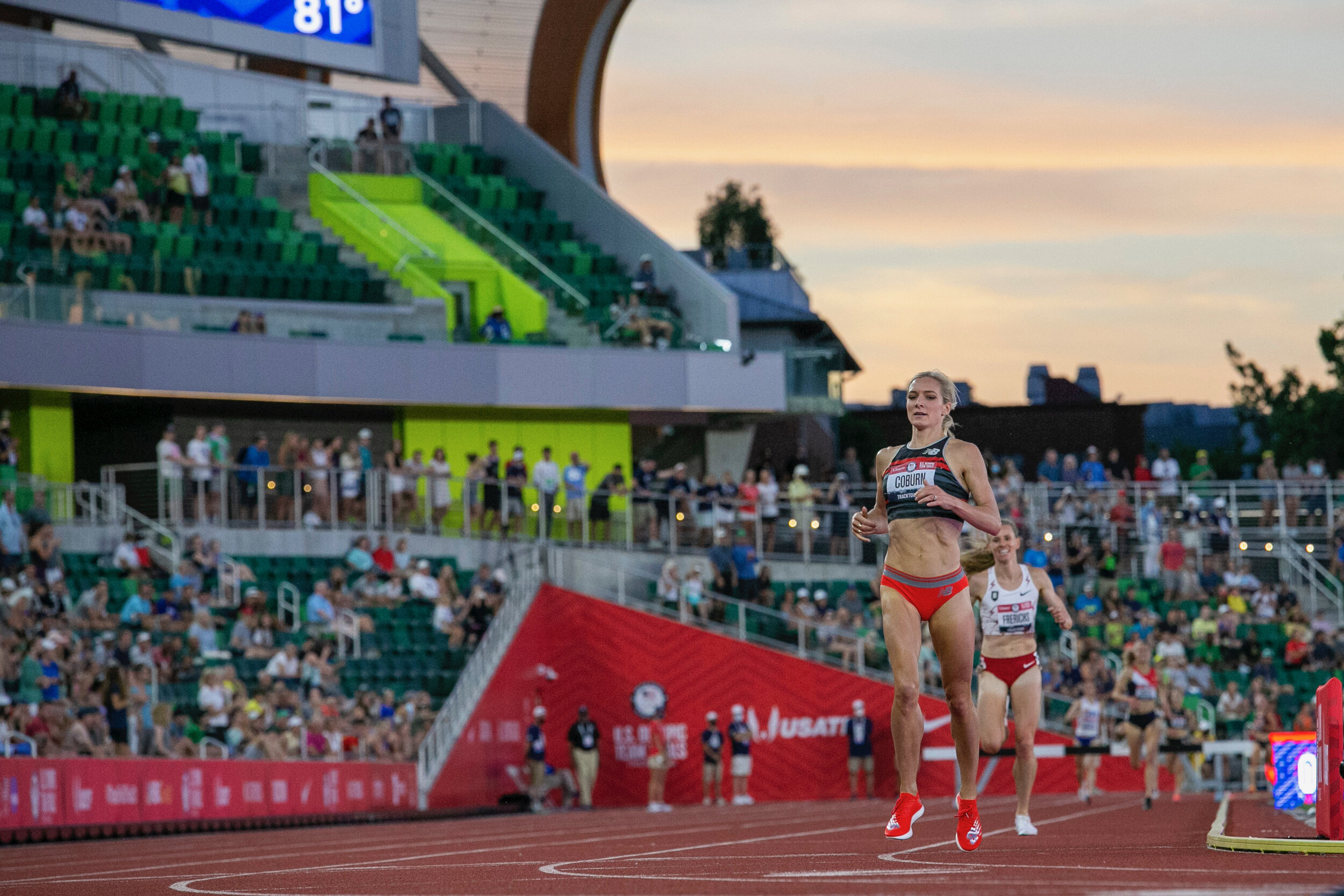Coburn runs to 9th time as US Steeplechase Champion, Falland has gut-wrenching fall in the pursuit of podium
Emma Coburn wins her ninth national title, earning her third Olympic steeplechase birth on Thursday. Photo by Jay Bendlin
By Caela Fenton and Kate Walkup
In the women’s 3,000m steeplechase final, the most exciting and the most gut-wrenching realities of the Olympic Trials were on display.
The finals featured twelve women, eight of whom had the Olympic standard going in. By anyone’s estimation, it was likely to be a race for third, with veteran steeplechase Olympians and World Championships medallists Emma Coburn and Courtney Frerichs expected to lead the pack.
Coburn—who started on the far outside lane—spent the first half of the race in the middle of the pack, steadily working her way up to the front. Frerichs made a move with about four laps to go. The move was covered by Coburn and Leah Falland, who pulled away from the chase pack and seemed to establish themselves as the future Tokyo team.
“I've worked really really hard to get back to a place where I could contend for that team and I wasn't afraid at all,” Falland said. “ I believe in myself wholeheartedly and I felt like I was in a really good position. I just settled into third and I could feel us peeling away from the rest of the pack and that's what I had envisioned.”
But then Leah Falland tripped.
Similar to Jackson Mestler’s taking advantage of a double fall in the men’s steeplechase prelims, for Val Constien, who had been sitting in fourth, the reality was that another runner’s fall was her own chance.
“As soon as I saw her take a tumble. I knew that I had a really, really good opportunity,”
The Colorado native did not take any pleasure in the fact that the bad luck of a fellow athlete was her own good fortune.
“It breaks my heart to see that happen. But, it's a part of racing. And I mean, I'm really, really happy to be here and I think I earned it and I think I worked hard,” Constien said. “But, I think if she hadn't fallen down, I mean she might be sitting in this seat.”
She added, “I really wish Leah hadn’t fallen because I think it could have been an even more exciting race.”
Val Constien claims the third Olympic steeplechase spot, joining fellow Colorado alumni Emma Coburn on the Tokyo team. Photo by Matt Parker
Constien is a self-described “blue-collar runner,” meaning that she works a 40-hour a week day job. In an increasingly commercially professionalized sporting world, it is rare to see runners like Constien who live the amateur grind, medalling at events like the Trials. The 25-year old is sponsored by Tracksmith, but that support provides clothing only. She pays for all of her own racing, travel and training costs out of her own pocket.
She hopes that her success will help communicate that people who work full-time can still have Olympic aspirations—and be serious about them.
Coburn’s 9:09.41 established a new meet record for the Trials (besting her own previous record of 9:17.48) and served as her ninth time as the U.S. national champion. She won her first American title 10 years ago, and has been the defending champion ever since, save for 2013, during which she did not compete due to injury.
Frerich’s 9:11.79 served as a season’s best for the current American record holder. Constien’s 9:18.34 was a personal record. Each of the athletes in the final who placed first through eighth, posted the fastest times in U.S. Trials history for those placings.
As much as the crowd might like to project an idea of a bitter rivalry between Coburn and Frerichs, who have topped the American steeplechase scene for years now, Coburn says that is far from reality.
“Courtney and I genuinely really like each other. We want to beat each other and we're not secretive about that,” Coburn said. “I know she wants to beat me and I want to beat her. But we also know that we make each other better. We just keep getting better and better, and so I think together we can make a splash in Tokyo and come home with some hardware.”
For Coburn, despite having been in this position before (this is her third Olympic team), this one was particularly special after a difficult year.
“My mom was diagnosed with stage four colon cancer in December of 2019,” Coburn explains. “From a personal standpoint, last year I was able to spend the whole year with my mom at home, and that was a really, really hard year but there was a silver lining that I was able to spend time with her and be there through a lot of great moments and some scary moments too. I'm just grateful that the trials happened, I've gotten to Tokyo, and we can just keep on this streak and kind of get life back to normal.”
It was also an emotional night for Frerichs. While elated to make her second Olympic team, the 28-year-old was emotional post-race about the absence of her teammate, Shelby Houlihan, from the Trials. Houlihan, who failed a drug test earlier in the year, was recently given a four-year ban.
“We found out that she had been officially given the ban, just under two weeks ago, and that was probably one of the hardest weeks of my life,” Frerichs said. “Shelby is somebody who I basically have walked alongside my entire career, we've made every team together, and so for her to not be here honestly it's just absolutely devastating.”
Courney Frerichs clears the water jump in the steeplechase final on Thursday. Photo by Jay Bendlin
Each of the athletes who qualified for Tokyo made their way over to Falland, who was in shock and disbelief on the track, after the race.
While devastated about the loss of her own Olympic opportunity, Falland epitomized sportsmanship after the race.
“The women who made the team are incredible and I'm really happy for them,” Falland said. “They took time out of their victory lap to hug me and tell me good job and supported me. It's really hard, and I’m upset, but I'm really happy for them. I'm going to be cheering for them in Tokyo.”
Coburn, Frerichs and Constein will be headed toward a fast Olympic field. Coburn thinks that the Tokyo steeplechase final will be nine minutes or faster. And she feels ready to take that on.
“Every year since 2017, I felt that I was fit enough to break nine minutes,” Coburn said. “It's not a fitness issue, it's a getting in the race and making it happen. If I'm going to try and win a medal in Tokyo, I think it's going to be a nine minutes or sub nine minute race.”
Coburn will head back to life with Team Boss, the training group coached by her husband, Joe Bosshard, whose members also include newly Tokyo qualified 1,500m runner, Cory McGee. Coburn thinks the philosophy behind Team Boss has elevated her game.
“I think because we are a group that's not backed by a shoe company, it's not backed by anyone but ourselves, so we have a lot of autonomy,” Coburn said. “We really get to cultivate a group of people that we believe in as people and as athletes and everyone is choosing to be on this team. We're friends, we believe in each other, we want to be together, we want to fight together—they're my favorite people.”
Frerichs plans on heading back up to altitude for another training block with her team, the Bowerman Track Club, before the Olympics. Constien isn’t entirely sure how her life will change now that she’s an Olympian-to-be. A shoe contract might be nice, but she still wants to keep her day job.



